What is another name for Phellinus linteus?
 2025-11-03 15:39:46
2025-11-03 15:39:46
1. Other Names and Forms of origin.
The various cultures and regions recognise Phellinus Linteus Tablets by various names. In Chinese it can also be commonly referred to as “Sanghuang (Sang Huang ) which means it is attached with mulberry trees which is usually the place where it thrives. In Japan it is called "Mesima" or "Meshimakobu" and in Korea it is called "Sanghwang". By all these names we mean the same species, but put emphasis on the cultural background and general use customs in the locality.
The mushroom is the member of the Hymenochaetaceae family and generally grows on the trunks of hardwood trees, most commonly mulberry. After Phellinus linteus is tough and has a woody texture, and does not taste like mushrooms do, unlike some edible mushrooms like shiitake or maiitake, which are intended to be cooked, this fungi is much better extracted into teas, powders, and supplements.
If you’re intrigued by Ciyuan Bio, Claim your free sample today! Need technical support for formulation or OEM/ODM solutions tailored to your brand? Reach out to us now or contact selina@ciybio.com.cn —we’re ready to collaborate.
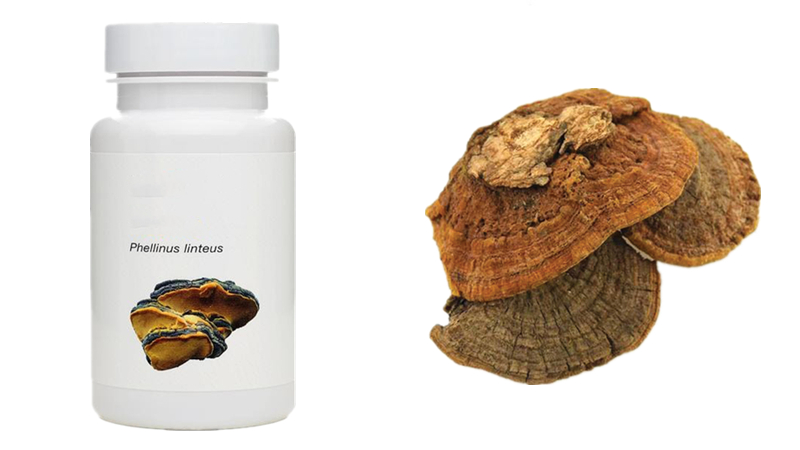
Phellinus Linteus Tablets
Product Name: Phellinus linteus tablets
Item form:tablets
Specifications: Customized
MOQ: 100 Bottles
Packing: 100bottles/carton or Customized
Certificate: ISO22000; HALAL; KOSHER; FDA
Shipping: Express;Sea; Air
Payment:TT;LC;West Union;Paypal;Alipay
Samples:1 bottle free sample for test
Shelf life: 24 Months in The Cool Dry Place
All of our products can be customized with raw materials and finished products such as capsules, tablets, pills, and small packaging according to your requirements! Ciyuan can also do free design,OEM packing, and private label. Our plant extract are crafted with your unique needs and are packed with the power of plants. 100% vegan, gluten- and lactose-free.
Reach out to us and Claim your free sample today!
2. The Uses in Eastern Medicine .
For centuries, Phellinus linteus has been an important ingredient of the traditional Chinese, Korean and Japanese medicine systems. It was commonly employed to aid the body to stabilize and sustain stability and vitality along with the inherent defenses and energy in the body.
The traditional practitioners held the view that Sanghuang assists in the strengthening of qi (life energy) purifying the body as well as endurance in general. It was used as a decoction or tea, and in some cases taken as a powdered or extract form which was taken long-term as wellness benefits.
3. Major Bioactive Components
Phellinus linteus is a plant that has various bioactive compounds, which bring about the health-supporting qualities of the plant, such as:
Polysaccharides: Known to aid in the performance of the immune system and help maintain healthy energy levels.
Polyphenols and flavonoids: Natural antioxidants, which help to protect cells from the oxidation (oxidative stress).
Triterpenoids: These are compounds responsible for balancing and maintaining stability of systems within the body.
b-glucan: Assistance in normal immune defence actions.
These compounds are now very well studied in modern science for their adaptogenic and restorative properties.
4. Phellinus Linteus. The Health Profits.
The contemporary study, as well as the ancient practice, points at various practical advantages of Phellinus linteus. The most recognized areas of support are listed below:
a. Supports Immune Health
Phellinus linteus has one of the most popular advantages of supporting the immune system. The polysaccharides and b-glucans that it contains are possibly helpful at helping the body maintain normal immune responses which is vital for normal daily wellness.
b. Promotes Healthy Aging
Phellinus Linteus Tablets could have a beneficial effect in the reduction of oxidative stress in the body due to its features of high antioxidant quality. Antioxidants aid conditions, including cellular preservation of free radicals, preventing general fatigue and skin condition.
c. Improves Vitality and stamina.
The adaptogenic nature of Phellinus linteus is helpful to the body in adapting to stress and balancing energy. It is also common in tonics or teas in order to enhance stamina, lessen the weariness, and enhance a physical strength.
d. Maintains Fluctuities and Digestion.
Other common medicinal applications identify Phellinus linteus with promoting liver functioning and digestion. It is believed to help keep the inside of one's system clean and balanced contributing to general metabolic health.
e. Improves Latent Completeness.
Phedrelin can be included in the supplement or tea type, making this regular consumption vital in the prevention of long-term well being, particularly when it is combined with a balanced meal and nutritious living.
5. The uses in the Contemporary Lives Industries.
Phellinus linteus is no longer composed as a traditional herbal substance last notation, but is a current application in the mainstream health and wellness sector, with uses in most domains:
a. Dietary Supplements
Poweders and capsules purchased of Phellinus linteus have become an extremely popular nutritional supplement to facilitate immune and vital systems. These products are especially popular with consumers who are looking for natural options that can be based in plants and offer wellness benefits.
b. Beverages and Foods: Functional.
With the onset of functional nutrition, Phellinus linteus is now found in health drinks, teas and energy drinks. The mushroom extract is an extract of mushrooms that have a gentle earthy taste and is natural source of adaptogenic properties that attract the health conscious consumers.
c. Skincare and Cosmetics
The anti-oxidant and anti-inflammatory activity of the Phellinus linteus is useful during cosmetology formulations. Extracts are incorporated in the creams and sera to work towards creation of youthful radiant skin and safeguard against the stress of environment.
d. Pharmaceutical: Pharmaceutical and Research
Phellinus linteus is also under investigation by the scientific community due to its polysaccharides, triterpenes, and antioxidant-compounds which may look forward to addition of physiological balance and supporting healthy cells.
e. Traditional @Integrative Medicine.
Phaffenuschiel, Phellinus linteus is still a held in high regard as an ingredient in herbal medicines in most countries of Asia and is commonly combined with other medicinal mushrooms namely reishi and cordyceps to form a combination wellness formula.
6. How to Use Phellinus Linteus
Phellinus linteus comes in several different forms that are convenient for the individual (depending on taste and desired use):
Form: Can be easily blended into blended drinks or coffee, and soups.
Tea: Prepared using water as a herbal beverage.
Pills or capsules: They are used as a daily supplement.
Liquid extract: Intense to be quickly absorbed and convenient.
When used habitually, Phellinus Linteus Tablets may help to maintain an overall wellness and contribute to the adaptive response by the body to stress factors.
References
-
Kim, S. H., & Kim, S. (2020). Biological and Pharmacological Properties of Phellinus linteus. Journal of Ethnopharmacology, 249, 112–124.
-
Lee, I. K., & Yun, B. S. (2011). Chemistry and Biological Activities of Phellinus linteus. Natural Product Sciences, 17(2), 73–81.
-
Wu, G., et al. (2018). Polysaccharides from Medicinal Mushrooms: Structure and Biological Activity. International Journal of Biological Macromolecules, 112, 891–898.
-
Zhang, M., et al. (2016). Traditional Uses and Pharmacological Activities of Medicinal Mushrooms. Frontiers in Pharmacology, 7, 169.
Contact us
If you’re intrigued by Ciyuan Bio, Claim your free sample today! Need technical support for formulation or OEM/ODM solutions tailored to your brand? Reach out to us now or contact selina@ciybio.com.cn —we’re ready to collaborate.


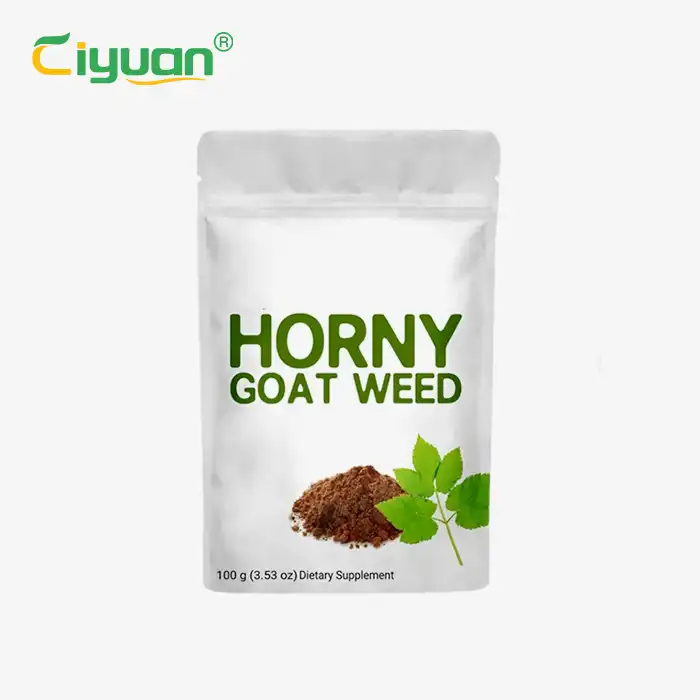
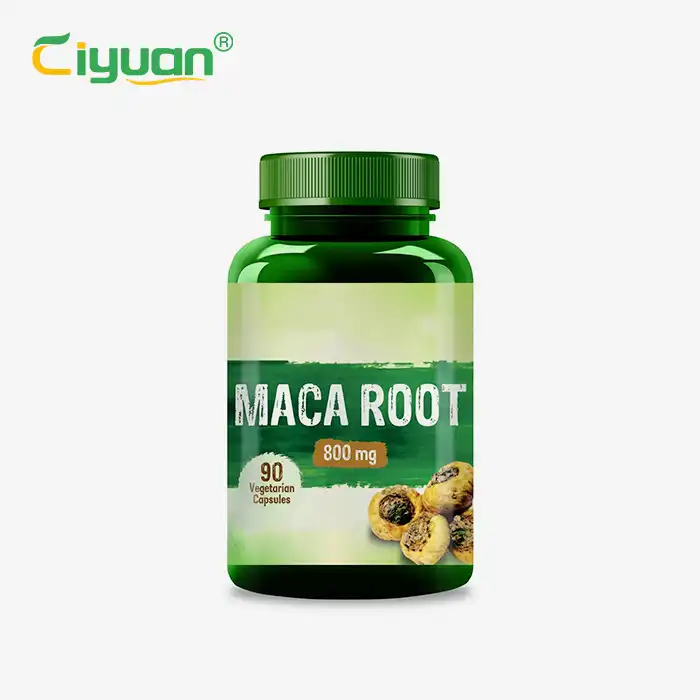
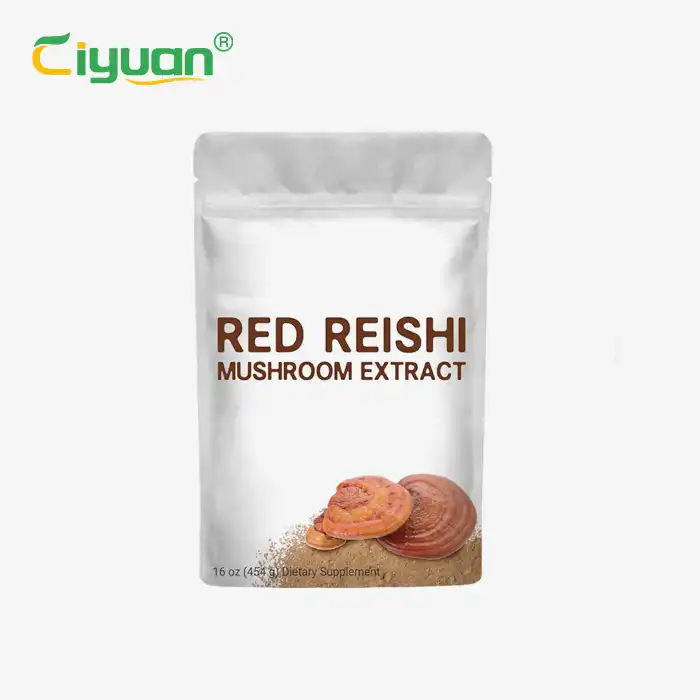





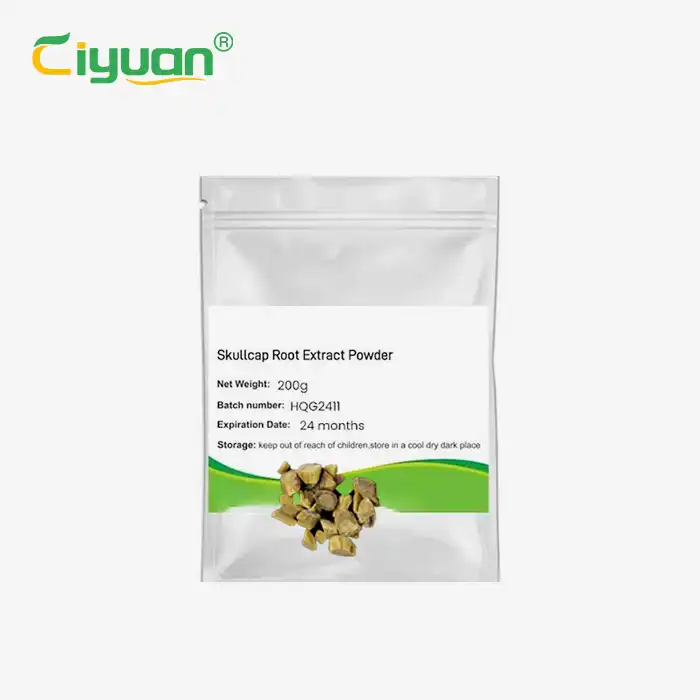
_1749106406826.webp)
_1753168077951.webp)
_1753774337322.webp)
_1756178827473.webp)
_1740402445801.webp)
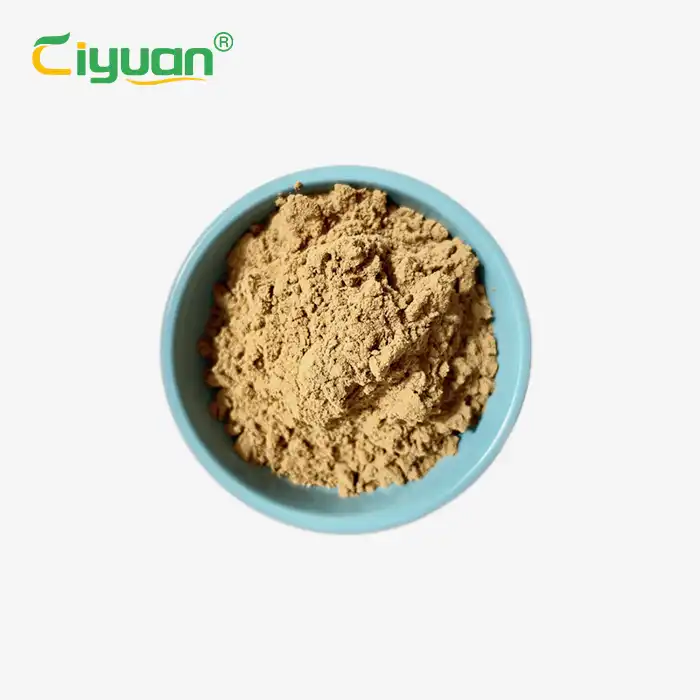
_1739968332483.webp)

